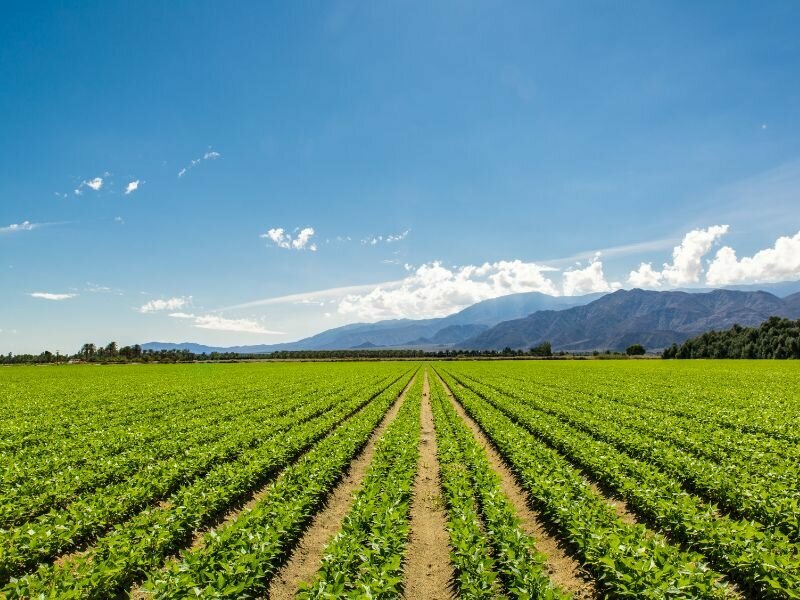 (Photo: Agricultural field of organic crops in California. Credit: Canva Pro.)
(Photo: Agricultural field of organic crops in California. Credit: Canva Pro.)Andes, a climate tech startup out of California, raised $30 million to develop scalable carbon sequestration through the use of microorganisms, which are capable of capturing carbon dioxide and converting it into minerals stored in the ground. At this time, the startup claims its technology has removed over 50,000 tons of CO2 from the atmosphere, while also benefiting soil and plant health.
This idea is not new, but Andes differentiates itself by using seeds as the vessels for carrying the microorganisms into the soil. Unlike sprayed pesticides or coatings applied to soil, this technology can be designed into the seed, removing extra liquid products or the need for special equipment.
“Andes microprime seeds can be stored, transported, and manipulated as any conventional seed,” said Gonzalo Fuenzalida, Andes co-founder, in an interview given to AFN. “Once the seeds are sowed on the field, before the seed coat breaks up and exposes the plant to the soil, our bacteria effectively colonizes the plant root structure by forming a biofilm and continues doing so through all the plant lifecycle.”
After a heavy rain, these microorganisms will take hold in the soil and grow alongside the roots of common crops like corn, soybeans, and wheat. According to the Andes website, this technology also improves soil health and stabilizes the biological communities that depend on the soil.
In a 2022 study from the Frontiers in Microbiology journal, researchers conclude that “microbial biostimulants” can reduce the stress of climate change on agricultural systems. However, there is a catch. Such products do not yet have a place in governing guidelines, like those of the FDA. Nor is there a worldwide standard for how to regulate their application and importation. The research also notes that these microbes are not as effective as synthetic products, like fertilizers, at mitigating dangers to plant life. Yet if carbon capture can be measured and sold, then there may be a monetary benefit to farmers – beyond the ideal of regenerative agriculture.
So far, this microbial technology has paid off for farmers in the US. Andes partnered with Midwest farmers to cover 25,000 acres, and they reported a 25% increase in net incomes of operations among the farmers enrolled in the Andes' Carbon Removal Program. The company is now receiving three times more interest from farmers in entering their program.
The Andes program is backed by investors like Yamaha Motor Ventures, Voyager VC, Leaps by Bayer, Cavallo Ventures, KdT Ventures, Venturance, Germin8, and Accelr8. In addition, the startup is taking part in the Amazon Web Services (AWS) Accelerator 3.0, as one of just 15 companies selected for their potential to develop innovative clean energy technologies.
"Investing in companies that enable longer, healthier lives is at the heart of Yamaha's mission. We're proud to support Andes as the company makes strides towards solving one of the world's most pressing climate challenges: reducing greenhouse gas emissions," said Kei Onishi, CEO of Yamaha Motor Ventures. "Fighting climate change and protecting future generations from severe natural disasters depends on our ability to scale high-permanence carbon dioxide removals.”
This financial endorsement of Andes by Yamaha Motor is the first investment made through their $100 million Yamaha Motor Sustainability Fund, which focuses on solutions to climate change. The project was chosen strategically as an experiment in carbon offsets and credits, which could help Yamaha meet its carbon neutrality goals.